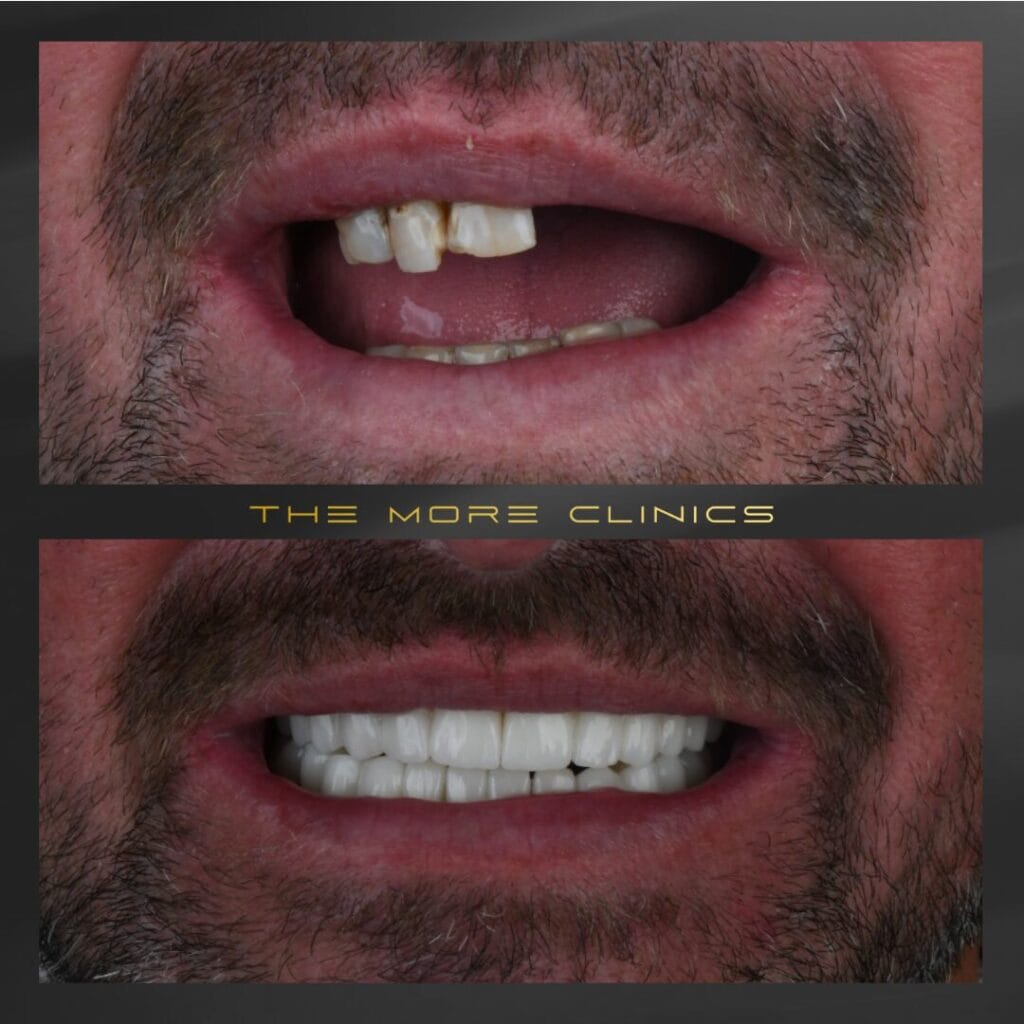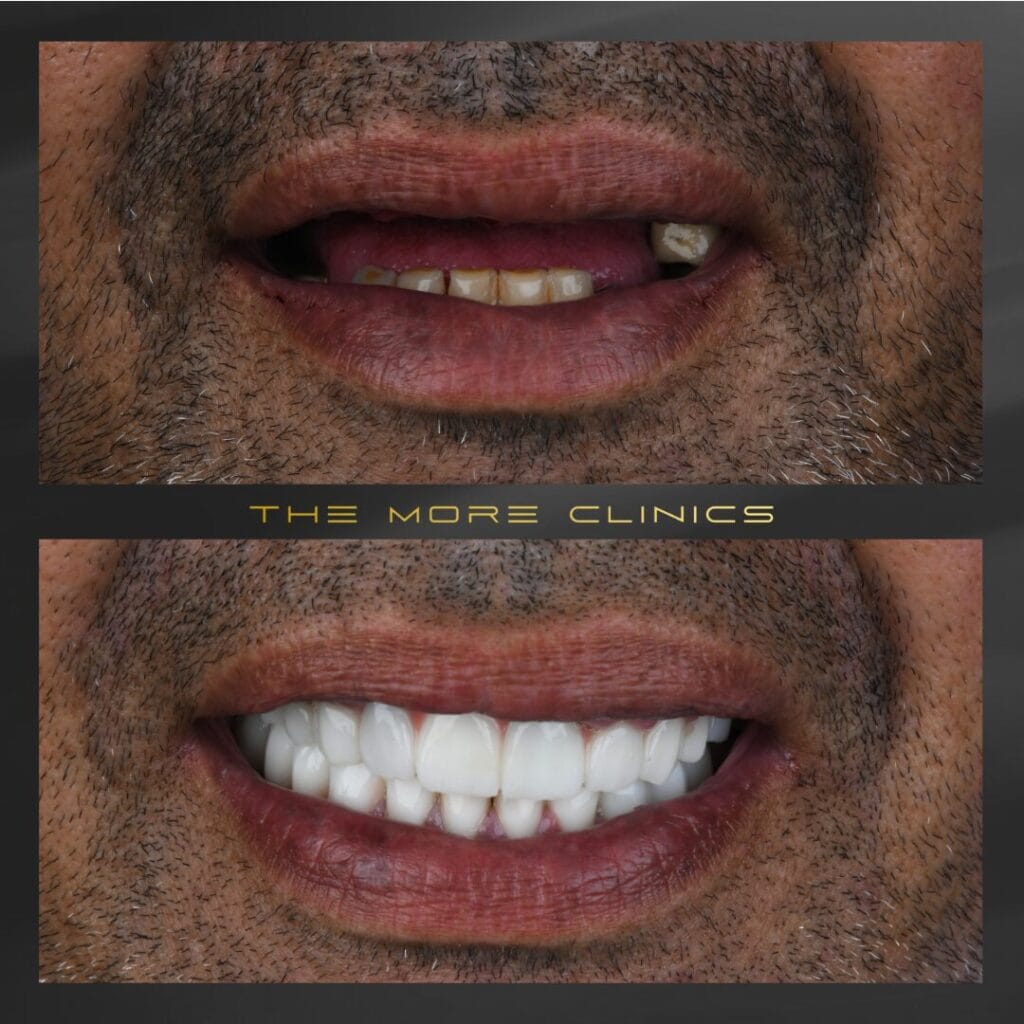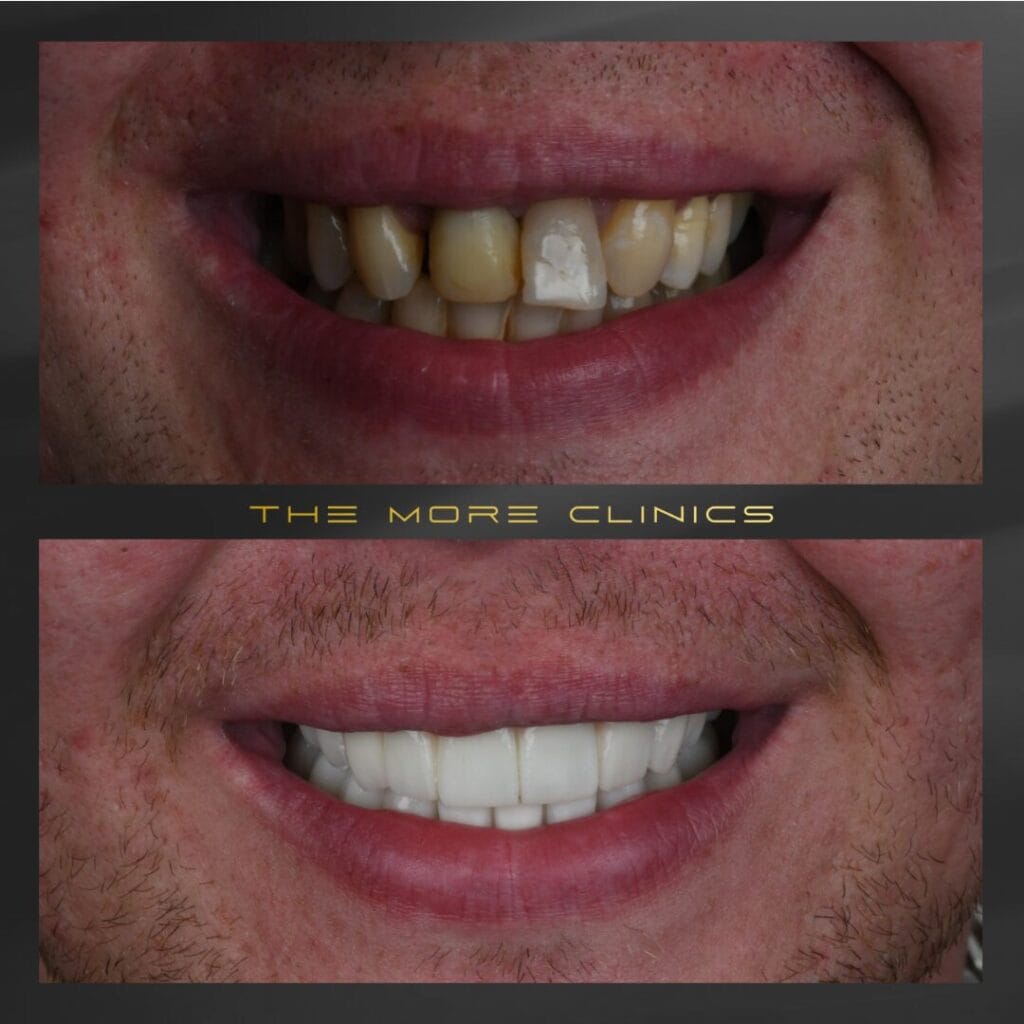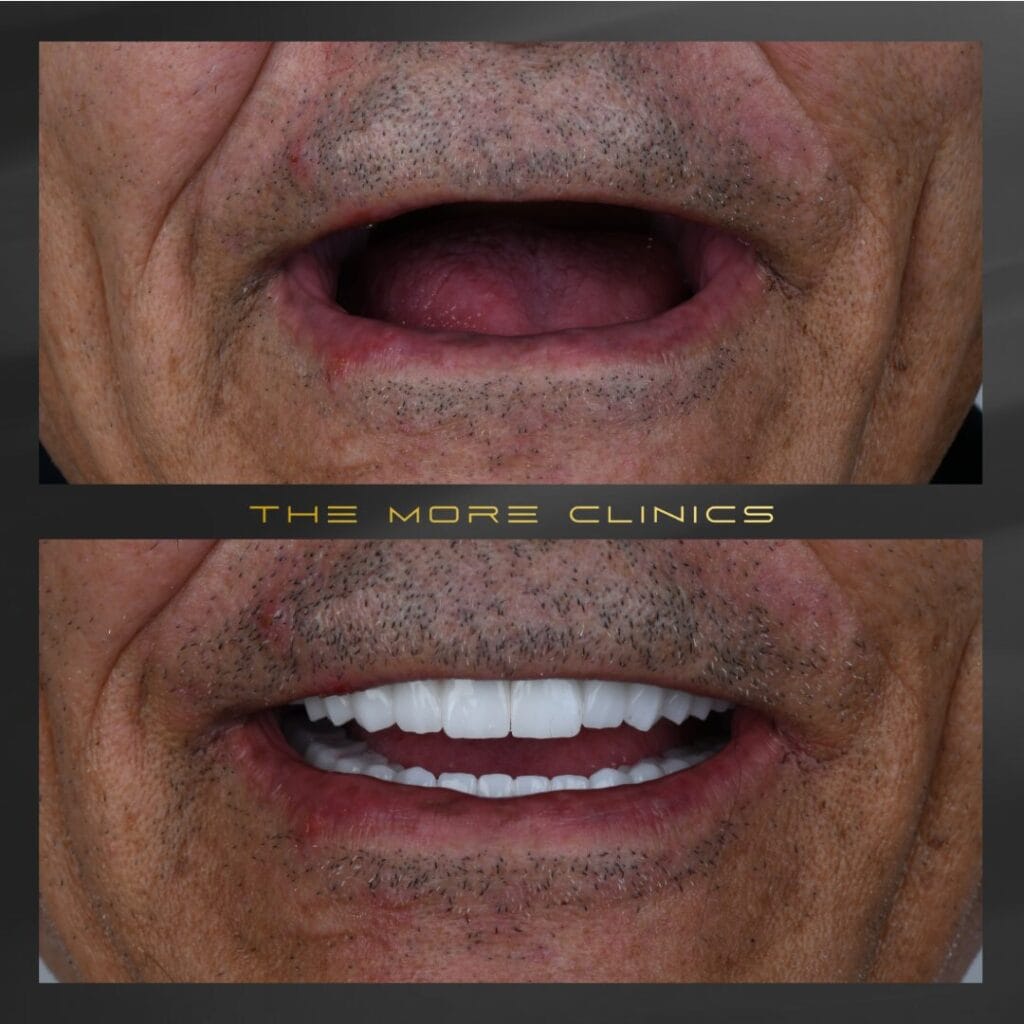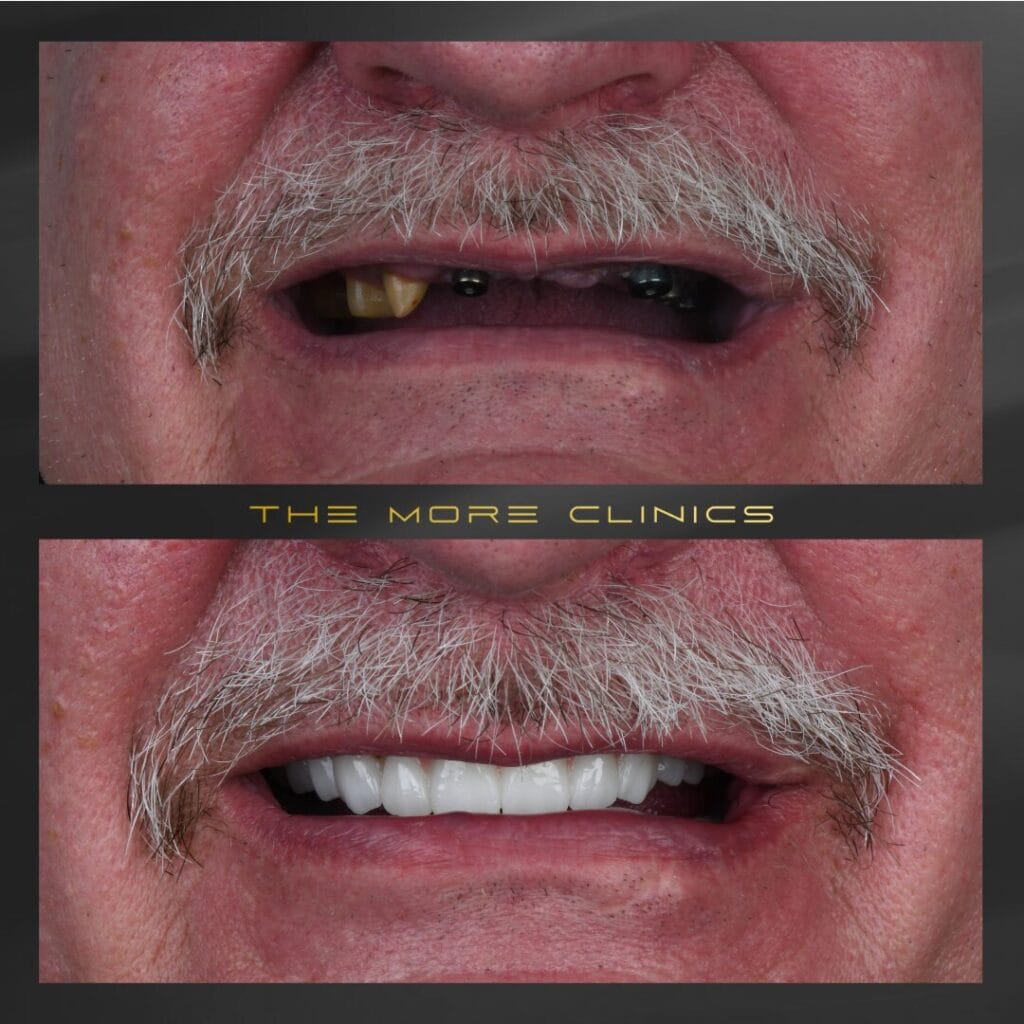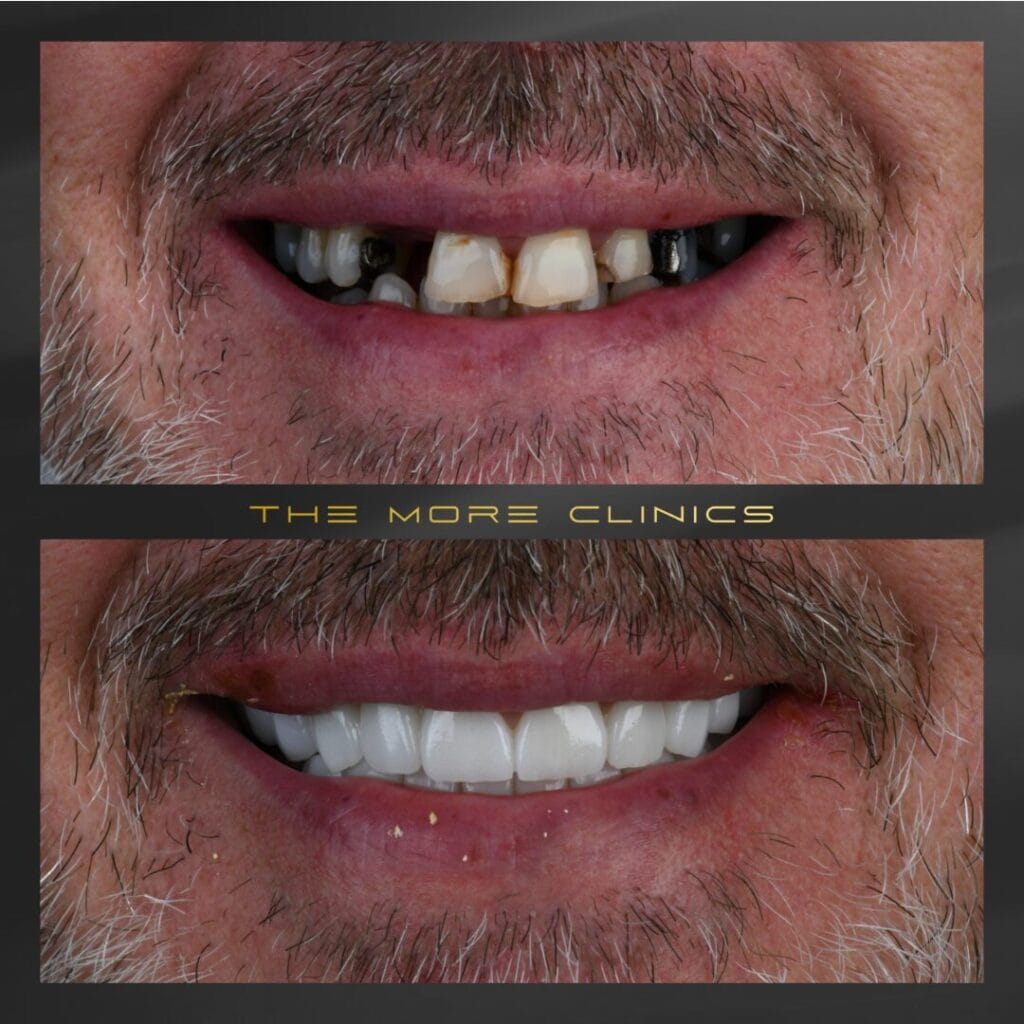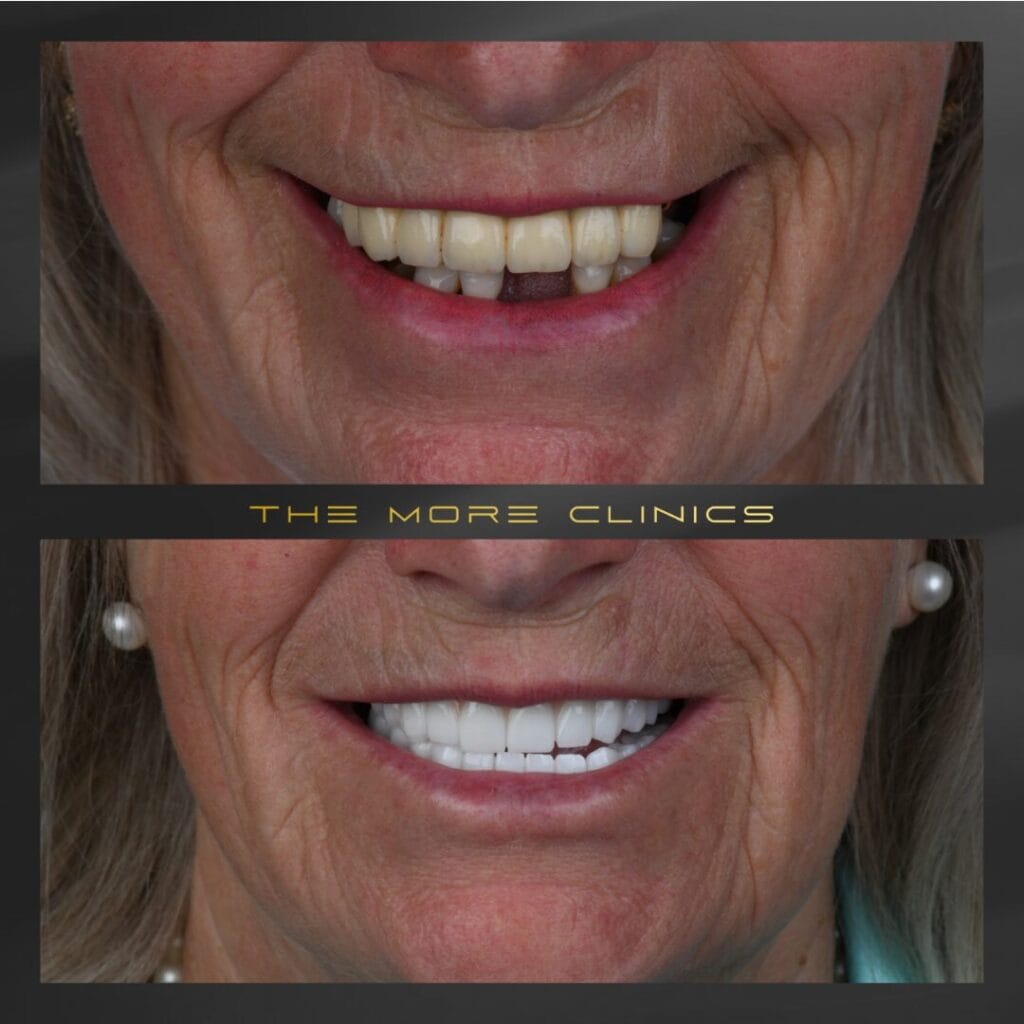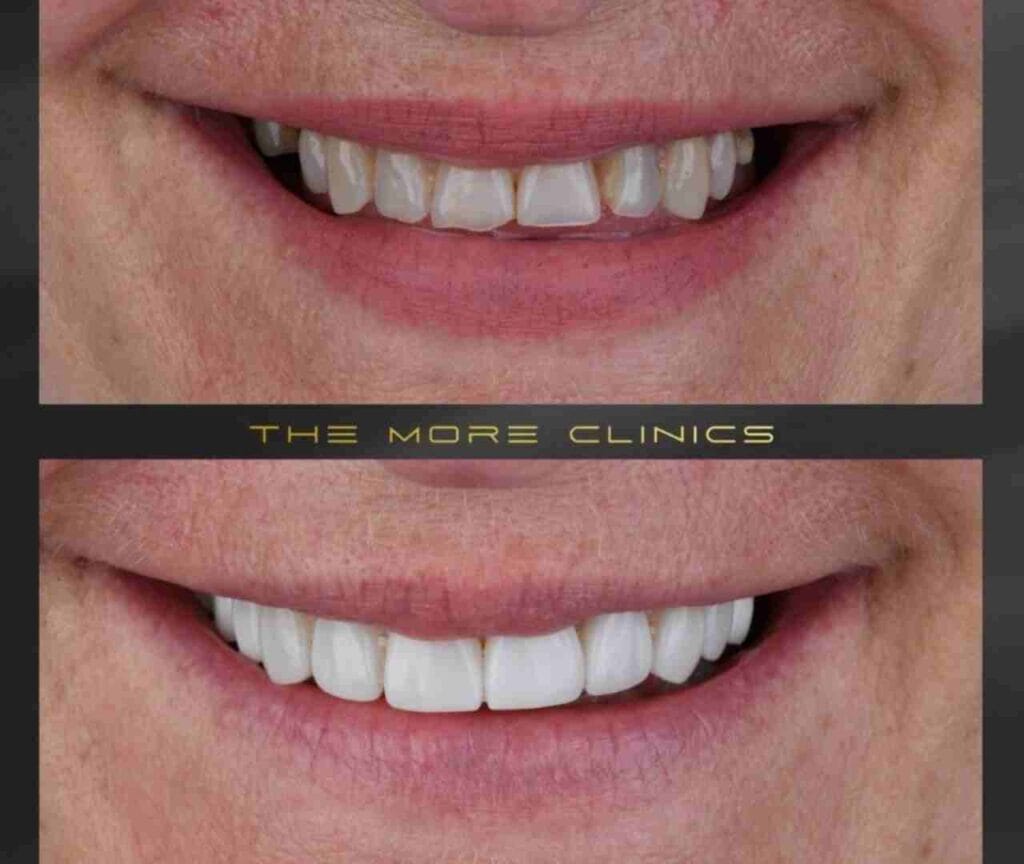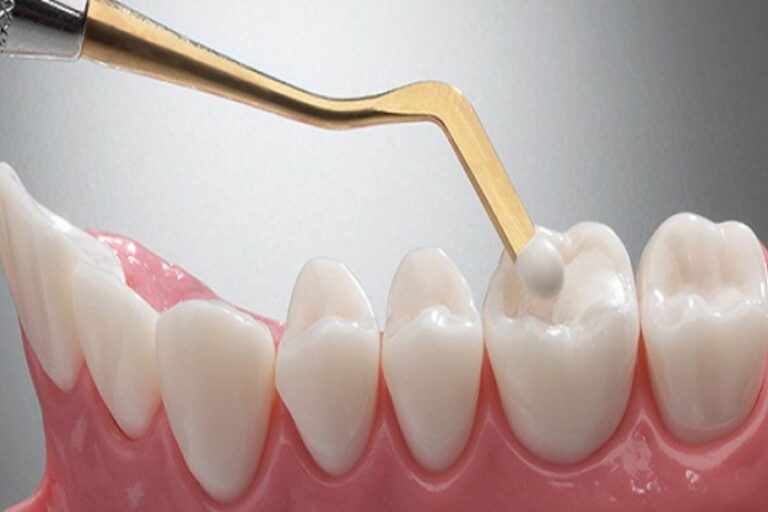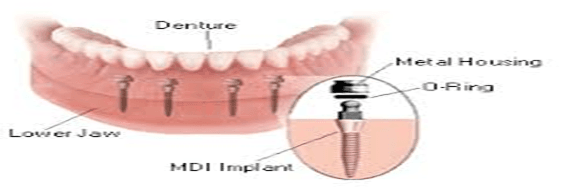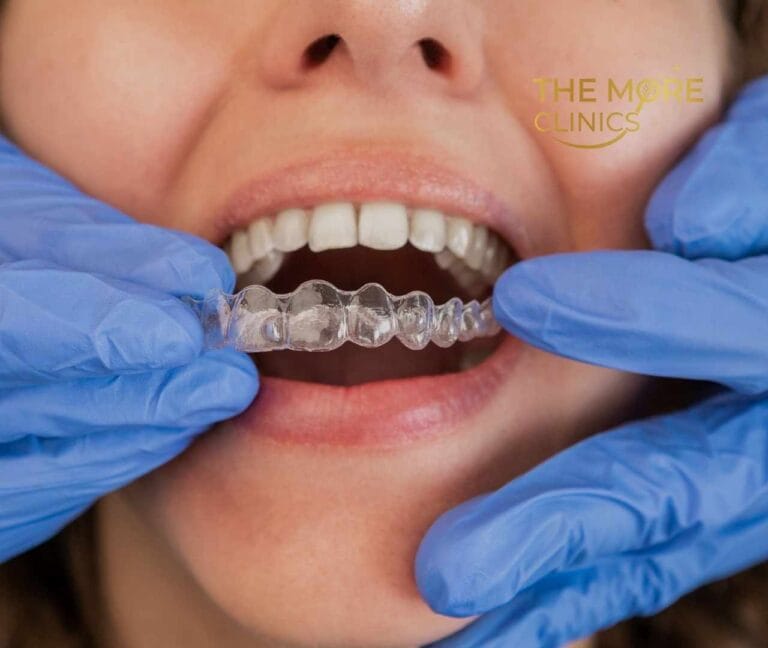Turkey Dental Implants: All You Need to Know
Welcome to your comprehensive guide on dental implants, the modern solution to rejuvenate your smile. In this article, we’ll delve into the world of dental implants, covering everything from their types to the steps involved in the procedure. Whether you’re considering implants for a single tooth or a full set, this guide will equip you with essential information. Bonus as an affordable, qualified option: Turkey Dental Implant! Do not forget teeth implants Turkey price deal!
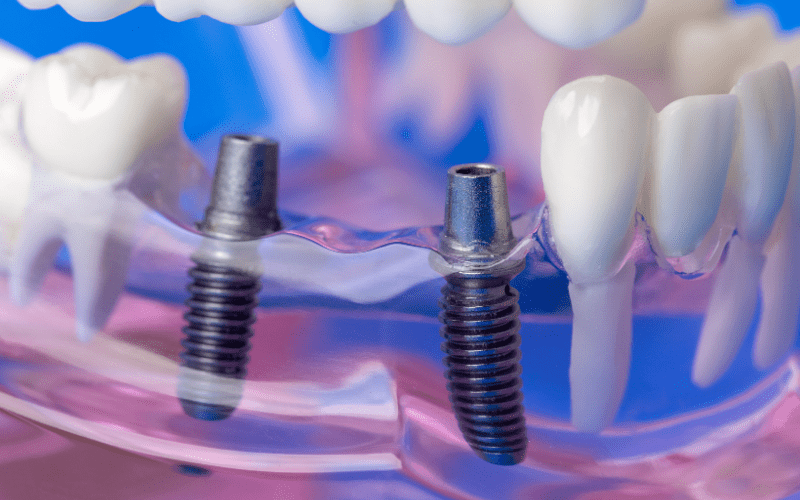
What are Dental Implants?
Dental implants are titanium posts surgically positioned into the jawbone to replace the roots of missing teeth. These implants provide a strong foundation for permanent or removable replacement teeth that are designed to match your natural teeth seamlessly.
Dental Implants: Step-by-Step Procedure
The dental implant process involves several stages:
- Initial Consultation: Your dentist assesses your oral health, discusses your goals, and develops a treatment plan.
- Implant Placement: The titanium post is surgically placed into the jawbone.
- Osseointegration: Over a few months (typically 3 to 6 months), the implant fuses with the bone, creating a sturdy foundation.
- Abutment Placement: Once integration is complete, an abutment is attached to the implant to connect the crown.
- Crown Placement: The custom-made dental crown is secured to the abutment, completing your new tooth.
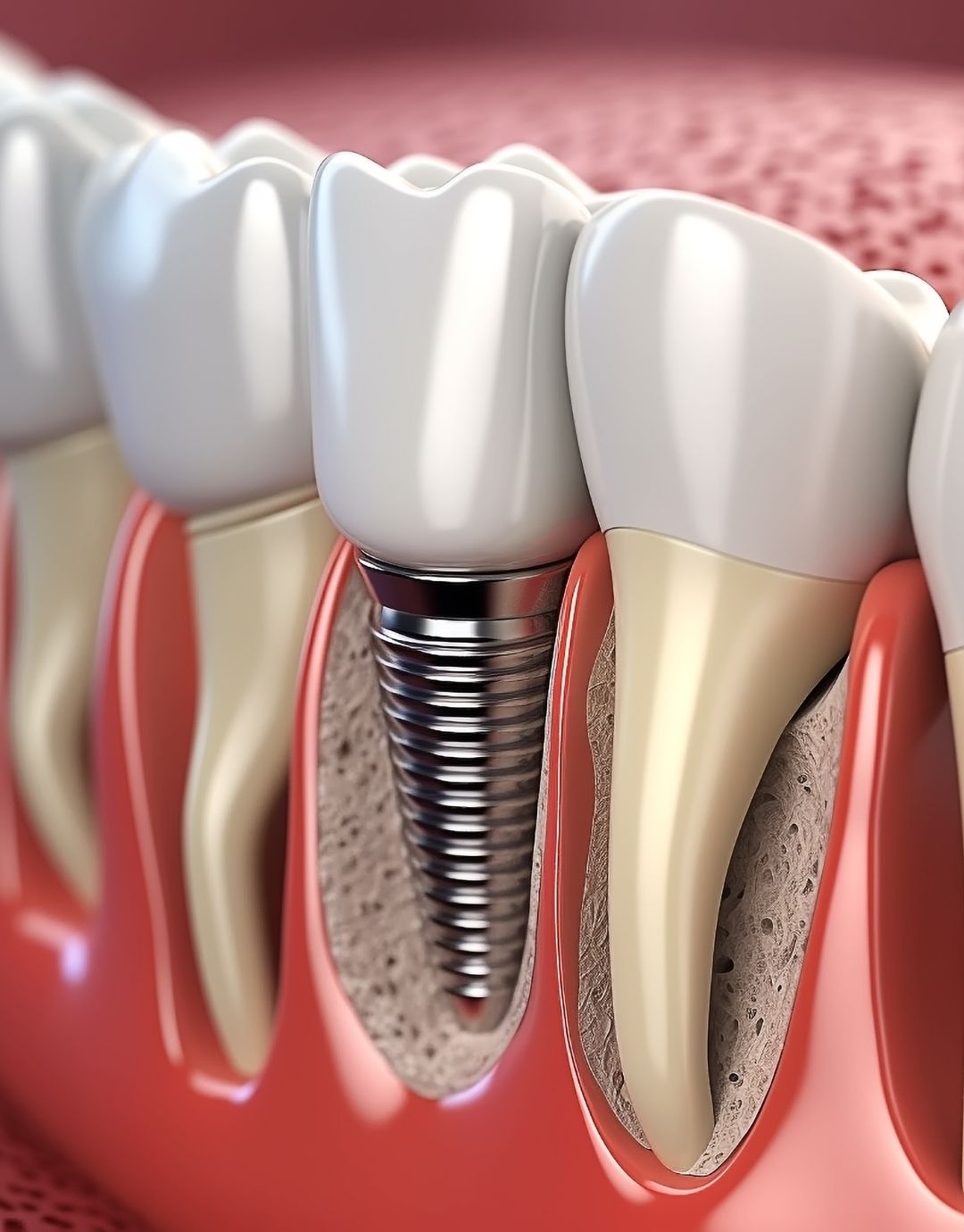
Types of Dental Implants
Several types of dental implants are available, each catering to specific needs:
Endosteal Implants: These are the most common type, placed directly into the jawbone. They’re ideal for patients with sufficient bone height.
Subperiosteal Implants: Positioned on top of the jawbone but underneath the gum, these are suitable for patients with limited bone height.
What You Should Know Before Having Implant
Before opting for dental implants, consider these important factors:
- Dental Evaluation: Consult a specialist dentist (periodontologist or oral and maxillofacial surgeon) to evaluate your oral health and determine if you’re a suitable candidate for dental implants.
- Bone Health: Sufficient bone density is essential for successful implant placement, so your dentist might recommend bone grafting or sinus lifting if necessary.
- Commitment: Dental implant procedures involve multiple appointments and healing periods (3 to 6 months healing time), requiring commitment from the patient.
For More Information Visit Our Turkey Teeth Implant Page.
How Dental Implants are Placed?
Who Is the Best Candidate?
The best candidates for dental implants are individuals who are in good general and oral health. Adequate bone density in the jaw is needed to support the implant, and the ideal candidates should have healthy gum tissues free of periodontal disease.
Smokers, individuals suffering from uncontrolled chronic disorders such as diabetes, or heart disease, or patients who have undergone radiation therapy to the head/neck area need to be evaluated on an individual basis.
Who can benefit:
- Those missing one or more teeth.
- Individuals with adequate bone density in the jaw.
- Patients seeking a permanent and natural-looking solution.
- Healthy individuals looking to improve their smiles.
Who can not have Dental Implants?
While most individuals are good candidates for standard dental implants, certain conditions, especially significant bone loss in the jaw, may present challenges. Advanced bone loss reduces the available structure for implant support, making traditional dental implant procedures less feasible. However, there are options for these individuals. For more information, read our blog about : All on 4 Dental Implants.
Zygomatic Implants for Severe Bone Loss
For those with severe maxillary (upper jaw) bone loss, zygomatic implants present an innovative solution. Unlike traditional implants that anchor into the jawbone, zygomatic implants are anchored in the cheekbone (zygoma), bypassing the need for sufficient jaw bone. These implants are longer than conventional ones and provide a secure foundation for the prosthetic teeth, allowing even individuals with severe bone loss to enjoy the benefits of dental implants.
Sinus Lifting and Bone Grafting
In instances of bone loss in the upper jaw, sinus lift or bone grafting procedures can be performed to increase the bone volume, creating a suitable foundation for dental implants. In a sinus lift, the sinus membrane is elevated, and bone graft material is packed into the space created. Over several months, this graft encourages new bone growth. Similarly, bone grafting involves adding bone (or a bone substitute) into the area lacking sufficient bone structure, creating a more solid base for the implant.
Advantages and Disadvantages
Implants offer numerous benefits, but it’s important to weigh them against potential drawbacks:
Advantages
- Enhanced Aesthetics: They closely resemble natural teeth, restoring your smile’s beauty and boosting self-confidence.
- Improved Functionality: Implants restore normal biting and chewing capabilities, allowing you to enjoy your favorite foods without restrictions.
- Durability: With proper care, implants can last a lifetime.
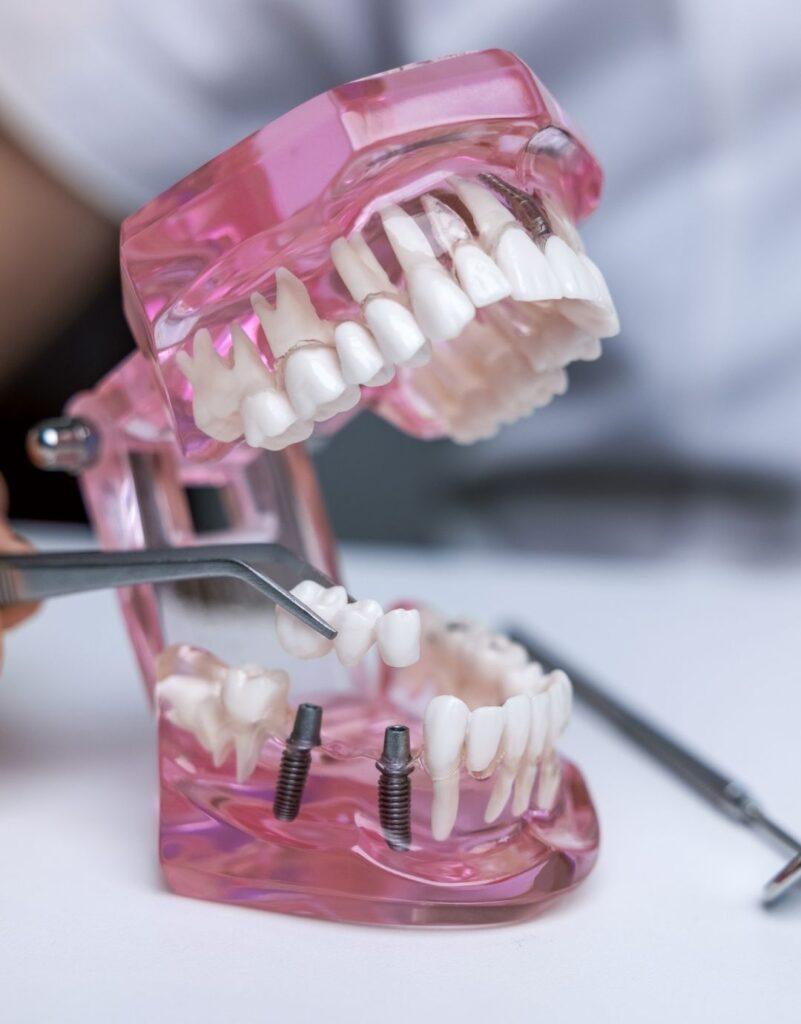
Disadvantages
- Invasive Procedure: Implant placement involves surgery and a healing period.
- Cost: Implants can be initially expensive; however, their long-term benefits often outweigh the investment. Keep reading for affordable option: Dental Implants Turkey.
Risks or Complications
While dental implants are generally safe, there are potential risks to be aware of:
- Infection: As with any surgical procedure, there’s a risk of infection at the implant site.
- Tooth Implant Failure: Implants might not integrate with the bone properly, leading to implant failure.
- Nerve Damage: Rarely, nerves in the surrounding area could be affected during the procedure.
Recovery
Recovering from an implant surgery requires time and careful attention. Here’s what you can expect, along with tips for a smooth recovery.
- Rest and Relaxation: For the first 24 hours after surgery, it’s best to rest and avoid any strenuous activities. This helps the healing process and reduces the risk of bleeding.
- Pain Management: Over-the-counter pain relievers or prescribed medications can be used to manage any discomfort following the procedure. Always follow your dentist’s instructions for usage.
- Ice Packs: Apply ice packs to the face to help reduce swelling and discomfort. This is most effective in the first 48 hours after surgery.
- Soft Diet: Stick to a diet of soft foods and liquids for a few days after the surgery. Gradually incorporate harder foods as your comfort allows.
- Avoid Smoking: Smoking can hinder the healing process and increase the risk of complications. It’s best to avoid this habit for a few weeks before and after the procedure.
- Limit Alcohol: Alcohol can interfere with healing. Limit your consumption for at least a week after the procedure.
Remember that every patient’s healing process is unique, so recovery time may vary. Always follow your dentist’s specific instructions for the best outcome.
You can read our Detailed Guide for Aftercare of Implants.
Cost of Dental Implants
Dental implant costs vary based on factors such as location, dentist’s expertise, and the number of implants needed. On average, a single dental implant can cost between $1500 to $3000. Dental implant cost in the Usa can exceed $6000. (Dental implant cost in New York can be around $7000, Dental implant cost in California can be around $6000, Dental implant cost in Washington can be around $6000).
Dental implant cost in the Uk can be between £1400 to £3000 per tooth. (Dental implant cost in London can be around £3000, Dental implant cost in Birmingham can be around £2500, Dental implant cost in Liverpool can be around £2000)
Dental implant cost in Germany can range from €1000 to €4000. (Dental implant cost in Berlin can be around €3000, Dental implant cost in Hamburg can be around €2500, Dental implant cost in Munich can be around €2000)
Dental implant cost in France and Belgium can range from €1000 to €3000. (Dental implant cost in Paris can be around €2500, Dental implant cost in Brussels can be around €2000, Dental implant cost in Amsterdam can be around €1500)
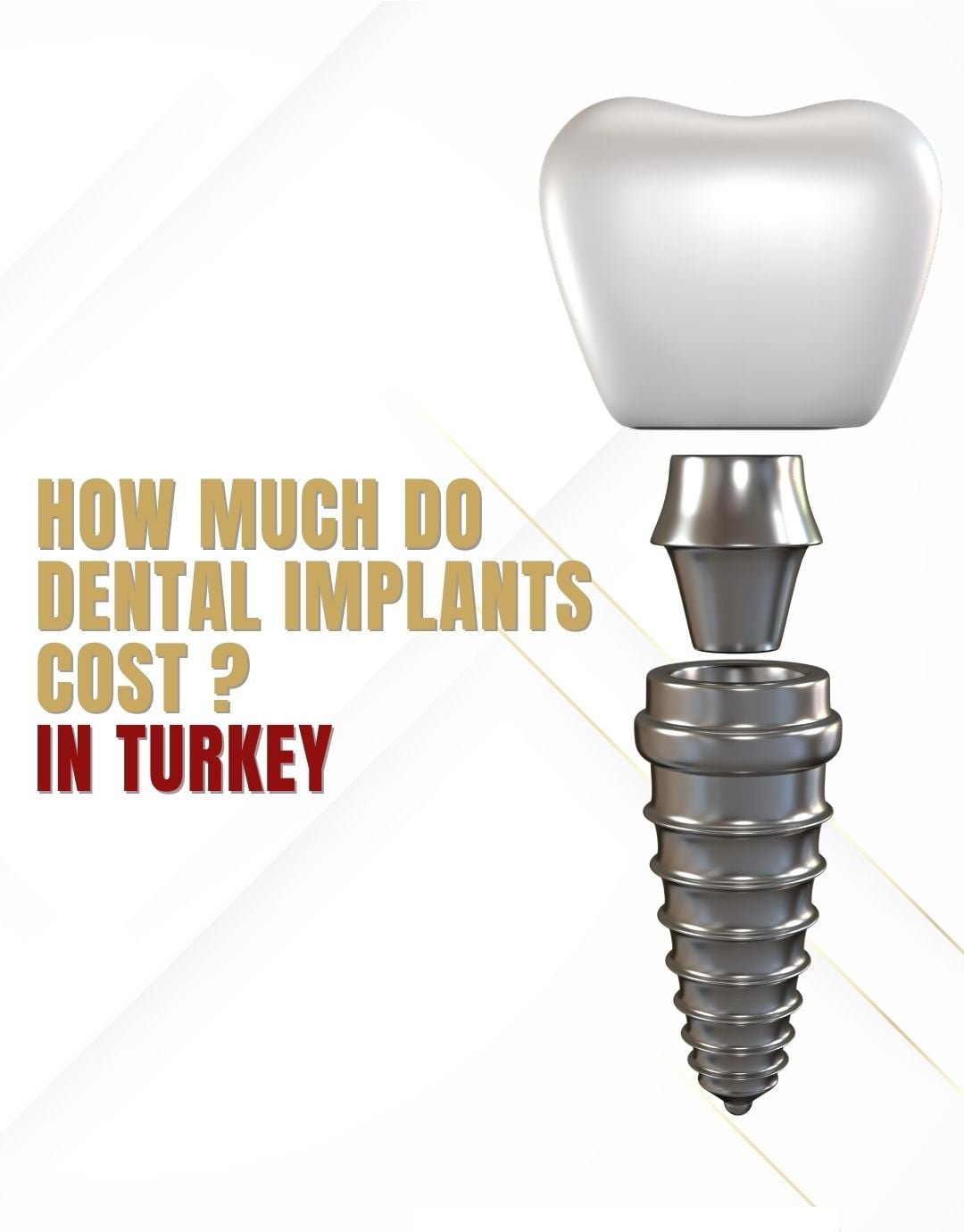
However, you can save substantially on costs by getting teeth implants Turkey price from 399$ ($399 Dental Implants) up to 1000$ you can get a single implant in Turkey.
Turkey Teeth Implants: An Affordable and Qualified Option
If you’re seeking quality and affordability, consider dental implants in Antalya, Turkey. Antalya, Turkey teeth implant cost with affordability is a popular destination for dental tourism due to its top-notch dentists and competitive pricing. If you’re looking for reliable dental services at an affordable cost, consider exploring options in Antalya and İstanbul. Experienced dentists and state-of-the-art technologies ensure you get the best care and value.
Dental Implant Before and After
Witness the transformative power of dental implants through inspiring before-and-after photos. These images showcase how dental implants can restore not only smiles but also self-esteem and quality of life. Want to see some results: visit our Dental Implant Before After Gallery!
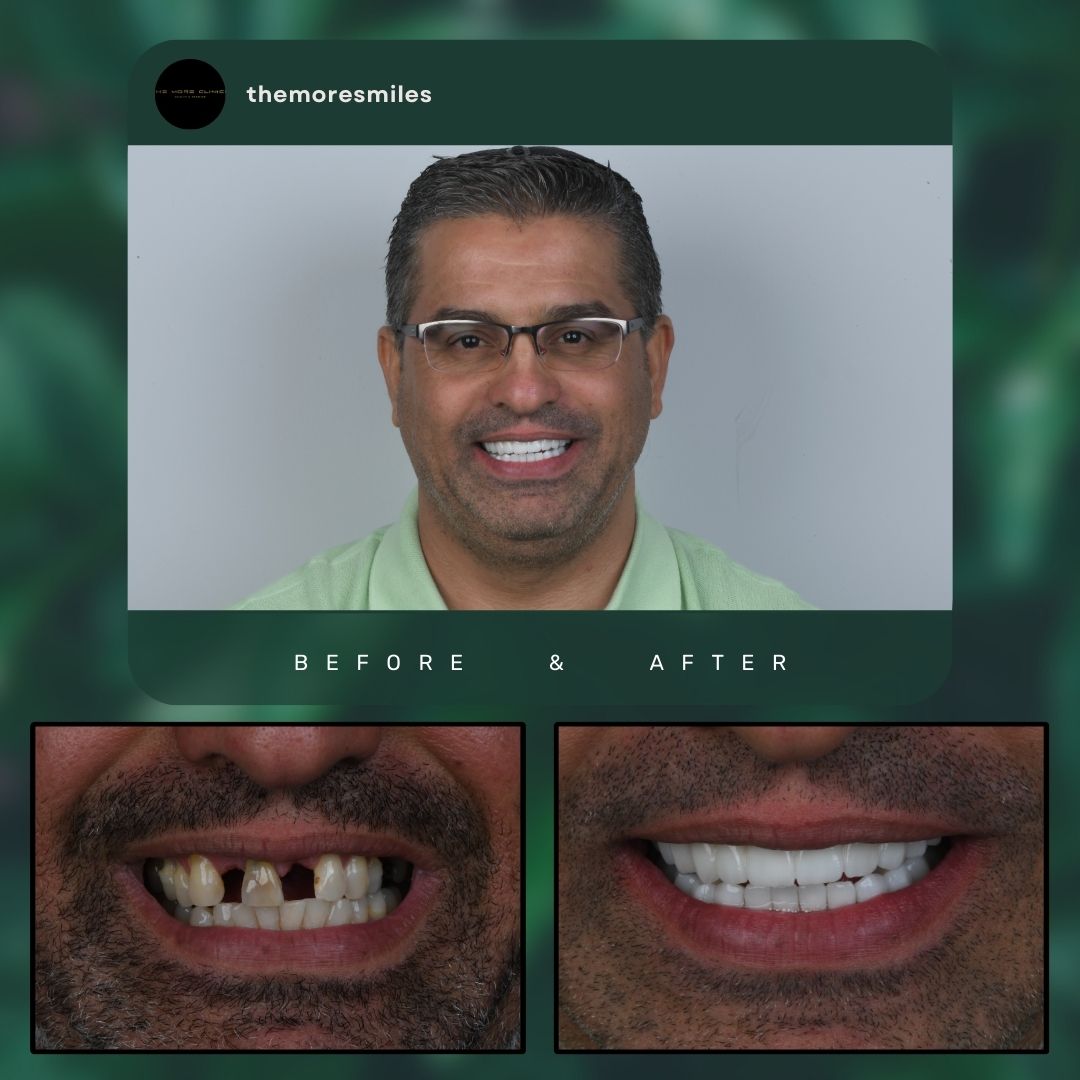
Dental Implant Before and After Gallery
POURQUOI LES GENS NOUS CHOISISSENT-ILS ?
“Pour obtenir de bons résultats cliniques, il faut combiner l’expertise médicale, les technologies de pointe et des soins de haute qualité.
Les cliniques More, qui offrent aux patients du monde entier des services dentaires de premier ordre dans plus de 90 pays, en 7 langues, en coordination avec les équipes de soutien et les bureaux des États-Unis, du Royaume-Uni, du Canada et d’Israël.
- Plus de 10 000 patients à travers le monde !
- Technologies de pointe et matériaux de haute qualité.
- Des marques de confiance à l’échelle mondiale !
- Laboratoire sur site
- Plus de 20 ans d’expérience.
- Équipe de dentistes qualifiés et accrédités en Turquie.
- Orienté vers les droits des patients !
- Des prix raisonnables et abordables
- Assistance sur site et hors site 24 heures sur 24, 7 jours sur 7.

Last Words from the The More Clinics
The More Clinics Turkey in Antalya offers exceptional dental care, experienced professionals, and advanced facilities, making it a trusted option for achieving a rejuvenated smile without breaking the bank. For your dental journey, The More Clinics is your reliable partner.
With a team of skilled dentists, state-of-the-art technology, and a commitment to patient satisfaction, The More Clinics ensures you receive exceptional care throughout your implant experience. Contact us today to learn more and let us schedule your free consultation.
GET A FREE CONSULTATION!
Let’s Start Planning Your Treatment %100 Guarantee Results.
A: With proper care, dental implants can last a lifetime.
A: The procedure is typically performed under local anesthesia, minimizing discomfort. Post-surgery soreness can be managed with pain medication.
A: No, dental implants are designed to blend seamlessly with your natural teeth, making them virtually indistinguishable.
A: Yes, dental implants restore full biting and chewing capabilities, allowing you to enjoy your favorite foods without restrictions.
A: Smoking can hinder the healing process and increase the risk of complications. Quitting smoking before and after the procedure is advisable.
A: Absolutely, dental implants can replace a single tooth, multiple teeth, or even a full set.
A: Of course, Turkey is the one of the most modern country in global dentistry. Still, you should get your dental implants Turkey treatment in a reputable clinic and by an experienced surgeon. There are some other certain rules for your safety. Contact us to learn more!
Cost of living and labour in Turkey is much lower than in Europe, USA and Uk. Also, dental tourism in Turkey allows reputable clinics to buy in bulk. So this price advantage is reflected to teeth implants Turkey price and that is why it is popular.
Turkey teeth implant cost depends on location and clinic reputation but at the More Clinics Turkey we offer the Straumann with 800€ price. Strauman dental implants are known for being best and most expensive dental implants in world.

